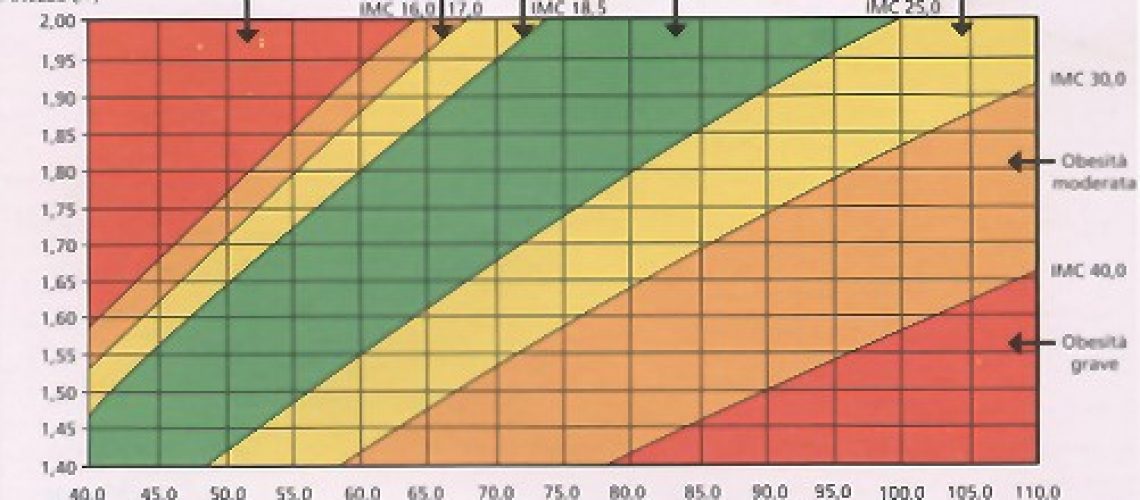Body weight is an expression of good energy intake. High or low weight may indicate dietary imbalances, but in addition to measuring weight, it is necessary to compare it with terms of reference of body constitution. The most widely used index is the Body Mass Index, which is the ratio of weight expressed in kg to height expressed in m². BMI is accepted for predictive abilities of major indices of morbidity, morbidity and mortality, being well correlated with fat mass.
A BMI that is too high indicates reduced survival: with a BMI between 30 and 35 the average survival is reduced by 2-4 years, between 40 and 45 the reduction is 8-10 years. For a 5-point increase in BMI, mortality increases by 30 percent. BMI reduction in the underweight range is also associated with higher mortality. However, the predictivity is reduced in the case of some clinical cases, but is very high for large segments of the population.
Source: Handbook of Dietetics and Clinical Nutrition by Franco Contaldo et al.




































































































